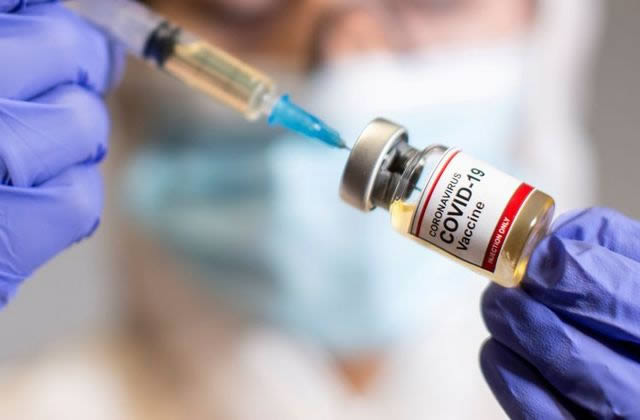Experts at the University of Michigan agree that you can take any COVID-19 vaccine that is given to you.
Any of the three COVID-19 vaccines currently in use—the Pfizer and Moderna mRNA vaccines, as well as Janssen/Johnson & Johnson’s newest vaccine—prohibits serious illness and death.
What is the mode of action of the Janssen/Johnson & Johnson vaccine?
The Janssen vaccine is established on older vaccine methods and incorporates a safe cold virus to provide commands to our cells for producing the spike protein that allows the COVID-19 virus to enter our cells.
The immune system then reacts to the spike protein by identifying it as foreign and producing antibodies against it.
The strongly effective vaccine for Ebola virus was developed using identical technologies.
Other vaccines; Moderna and Pfizer are unique because they convey mRNA information for spike protein within a lipid ball that reaches your cells and activates the immune system.
The Janssen vaccine needs only one round, opposite the mRNA vaccines, which need two shots.
Differentiating COVID-19 vaccines
Some people might be curious about how the three vaccines currently on the market—Moderna, Pfizer, and Janssen compare with each other.
Are the Pfizer and Moderna mRNA vaccines safer than the latest Janssen/Johnson & Johnson vaccine?
They cannot be compared in every aspect with each other, according to Adam Lauring, M.D., assistant professor in the Department of Internal Medicine’s various divisions.
According to him, “This is not the way science is done”.
First, he states, the experiments were conducted at various points during the disease outbreak, in various countries with various populations.
The Janssen findings took place at a time when various strains of the virus were spreading around the world, with varying degrees of effectiveness relying on where you aimed.
Janssen, for example, revealed at the end of January that their vaccine was 85 percent successful against intense COVID-19 in the United States when tested 28 days after vaccination.
In late 2020, Pfizer and Moderna vaccines were reported to be efficient more than 94% against fatal illness. However, the mRNA experiments were conducted before newer, which are more infectious stains of the SARS-CoV2 virus, termed as variants, started to spread.
For example, Pfizer and Moderna lately investigated the potential of blood drawn from people who had obtained an mRNA vaccine to neutralize a new form of SARS-CoV2 known as B.1.351, which is spreading widely in South Africa.
For a more common example, flu vaccines are only around 40 to 60% effective per year, but they still protect millions of people from being sick and thousands more from being hospitalized or dying.
Besides that, the one dose of Janssen/Johnson & Johnson vaccine could be useful for some groups, like people who travel around a lot and can’t get a second round, people on immunosuppressant medications who can’t easily stop having them in order to get a second shot of vaccine, and people allergic to the mRNA vaccine.
With freezing, the vaccine is often more safely preserved and reliable for longer durations.
According to Lauring, new research will be required to fully directly correlate the COVID-19 vaccines; this form of testing for comparative usefulness has been done for ages with flu vaccines.
Efficacy vs. effectiveness
COVID-19 vaccines are still being examined in the real world by scientists.
A previous work in Israel, which examined at over 1 million people who were treated with the Pfizer vaccine, found that the vaccine is successful in minimizing SARS-CoV2 spread, with cases declining significantly and the risk of serious disease decreasing by up to 92 percent.
Additional effectiveness trials for the Pfizer and Moderna vaccines, as well as the Janssen/Johnson & Johnson vaccine, are currently ongoing in the United States.
In this together
It’s important to note that the advantages of vaccination aren’t just about lowering an individual’s risk, but also about lowering population-wide spread, according to Lauring.
“The idea that you would split hairs is missing the bigger picture: we have to get as many vaccines into as many people as fast as we can because that’s the only way out of this.”
Are COVID-19 vaccines effective in preventing transmission? Once again, the answer isn’t a simple yes or no. Lauring says, “It’s somewhere in the grey.” “It is likely all of the vaccines reduce transmission by some amount.”
Since no vaccination can prevent all spread, public health precautions such as masking and social distancing will be necessary. “Across society, we will require precautions until we get enough people immune.”
The COVID-19 vaccinations would certainly minimise sickness across the board, even though they do not totally eradicate it.
Says Lauring, “I suspect that all the vaccines will work to reduce each aspect of COVID – death, severe disease, mild to moderate disease, the chances of becoming a long hauler. The efficacy against each will differ.”
The chance to adjust to normal life after receiving the vaccine is contingent on the vaccination level of those in your immediate vicinity.
“As we get cases below a certain amount, we will be able to relax the other social behaviors, open up and start doing things the way we used to do.”
Vaccines protect lives at the end of the day. Lauring advises people to consider what is most essential to them.
“I imagine many would say ‘protecting me and my loved ones from getting really sick’ or ‘reopening society so we can get back to normal,’” he says.
All three vaccines are effective in this situation. They save you from being seriously ill, and they’re a vital step toward getting out of the pandemic’s grip.
And right now, the very important thing is to have as many people vaccinated as possible.



